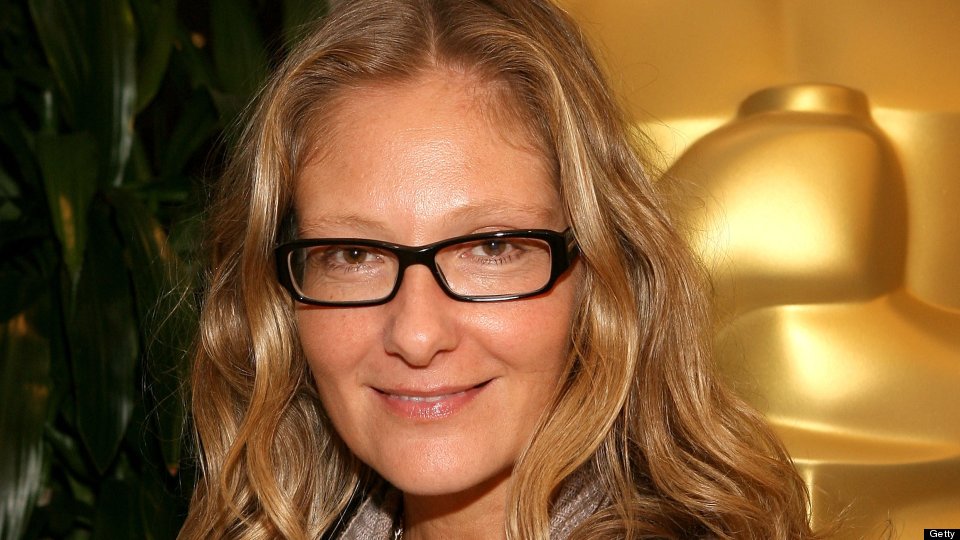by Lloyd Grove

It’s no longer called Red China, and the formerly Maoist People’s Republic has embraced capitalism with a vengeance, but that doesn’t mean the powerful Chinese bureaucracy is big on freedom of expression.
Indeed, the cultural apparatchiks of the planet’s most populous country can be—what’s the expression?—inscrutably touchy.
A case in point is the official demand, masquerading as a polite request, that documentary filmmaker Eva Orner delete two seemingly innocuous moments from her acclaimed movie The Network — which chronicles how media mogul Saad Mohseni’s Tolo TV is transforming Afghan society — if she would like it to be shown at the 2013 Guangzhou International Documentary Film Festival.
“It was hilarious and sort of sad as well,” Orner told me about an email that was sent last week to her film’s London sales agent by the government-run festival’s international liaison, Sun Wei, who goes by the Western nickname “David.”
“We are very glad to tell you that we are considering selecting your film The Network as one of the finalist[s],” David wrote from the Chinese port city historically known as Canton.
Indeed, the cultural apparatchiks of the planet’s most populous country can be—what’s the expression?—inscrutably touchy.
A case in point is the official demand, masquerading as a polite request, that documentary filmmaker Eva Orner delete two seemingly innocuous moments from her acclaimed movie The Network — which chronicles how media mogul Saad Mohseni’s Tolo TV is transforming Afghan society — if she would like it to be shown at the 2013 Guangzhou International Documentary Film Festival.
“It was hilarious and sort of sad as well,” Orner told me about an email that was sent last week to her film’s London sales agent by the government-run festival’s international liaison, Sun Wei, who goes by the Western nickname “David.”
“We are very glad to tell you that we are considering selecting your film The Network as one of the finalist[s],” David wrote from the Chinese port city historically known as Canton.
“However, the jury considers parts of your film controversial and need you to cut that parts [sic]…If you agree to cut this part, the jury may be able to select your film into the final list. We need your swift response.” (David didn’t respond to my email seeking an explanation for the jury’s objections.)
Orner, who shared the 2007 Best Documentary Academy Award as a producer of Taxi to the Dark Side, Alex Gibney’s expose of the American use of torture in Iraq, said she’s clueless as to why the Chinese censors were so upset.
In one apparently objectionable portion, Tolo TV personality Mujeeb Arez, the bubbly host of a popular travel show, gushes about a trip to New York City.
Orner, who shared the 2007 Best Documentary Academy Award as a producer of Taxi to the Dark Side, Alex Gibney’s expose of the American use of torture in Iraq, said she’s clueless as to why the Chinese censors were so upset.
In one apparently objectionable portion, Tolo TV personality Mujeeb Arez, the bubbly host of a popular travel show, gushes about a trip to New York City.
“I’m telling everyone that the best city in the world is America, and I think it is,” he enthuses.
“That doesn’t even make sense,” Orner commented, noting that America is not a city, “and it’s hardly pro-American propaganda.”
In the other unacceptable segment, Afghan journalist Ahmad Shafi discusses how living through the Soviet invasion and the subsequent Taliban dictatorship influenced his perspective.
“That doesn’t even make sense,” Orner commented, noting that America is not a city, “and it’s hardly pro-American propaganda.”
In the other unacceptable segment, Afghan journalist Ahmad Shafi discusses how living through the Soviet invasion and the subsequent Taliban dictatorship influenced his perspective.
“It made me believe in myself as opposed to an ideology,” he says.
“I don’t need Communism, I don’t need Jihadism, I don’t need anything to make me believe in something.”
“It’s not like he’s denouncing Communism,” Orner said.“It’s just so stupid—comically stupid,” Orner said of the proposed cuts.
“I found it so extraordinary that they had people watching this film and pulling out anything that could be seen as anti-Communist or pro-American. It’s like old-school Communist China.”
Orner, a seasoned veteran of film festivals the world over, said this is the first time in her experience that officials of any festival have demanded deletions of material deemed too controversial.
Orner, a seasoned veteran of film festivals the world over, said this is the first time in her experience that officials of any festival have demanded deletions of material deemed too controversial.
Stranger still, she added, is that the two offending sections, amounting to a few seconds total, are among the milder moments in a film that shows real-life executions by gunfire and hanging, and documents the violent abuse of women in oppressively patriarchal Afghanistan.
“It’s just so stupid—comically stupid,” Orner said about the proposed Chinese censorship.
“It’s just so stupid—comically stupid,” Orner said about the proposed Chinese censorship.
But as long as the bureaucrats at the Guangzhou International Documentary Film Festival agree to foot the bill for the demanded deletions, they’re so trivial Orner said she’s willing to accept them.
“I wrote back to sales agent, ‘Tell them they can knock themselves out,’” Orner said.
“I wrote back to sales agent, ‘Tell them they can knock themselves out,’” Orner said.
“I’m not precious about it. I would love for people in China to see the film, as along as they don’t think it’s about how lovely Afghanistan is.”








0 comments:
Post a Comment